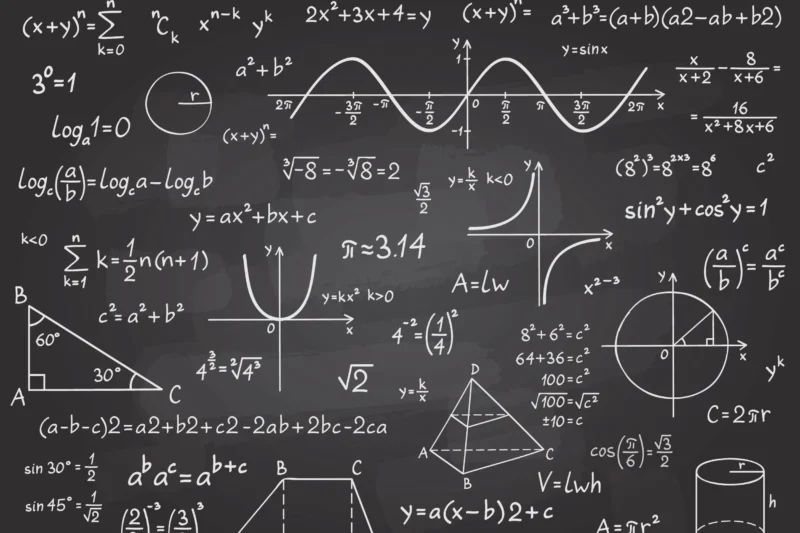
Share Post:
The number 1 is not a prime number. This decision is based on mathematical principles that define a prime number as a natural number greater than 1 with exactly two distinct positive divisors: 1 and itself. Since 1 only has one positive divisor, it does not meet the criteria.
Table of Contents
ToggleKey Takeaways
- Prime numbers: Have exactly two distinct positive divisors.
- 1: Only has one positive divisor, which is why it is not prime.
Definition of a Prime Number

A prime number is defined as a natural number greater than 1 that has exactly two distinct positive divisors: 1 and the number itself. This means that a prime number cannot be divided evenly by any other numbers except for 1 and itself. The smallest prime number is 2, which is also the only even prime number.
Other examples of prime numbers include 3, 5, 7, and 11. Prime numbers are the fundamental building blocks in mathematics because every natural number greater than 1 can be uniquely factored into prime numbers. If you want to test your understanding of prime numbers and factorization, try this challenging 6th-grade math quiz and put your skills to the test!
Why 1 Does Not Qualify as a Prime Number?

The number 1 is not classified as a prime number because it does not meet the fundamental definition of a prime number. A prime number must have exactly two distinct positive divisors: 1 and the number itself. However, 1 only has one divisor, which is 1.
This means it fails to meet the criterion of having two distinct divisors, which is why it is excluded from the list of prime numbers.
Historically, the classification of 1 as a prime number has been debated. At one point, some mathematicians considered 1 to be prime. However, this classification created inconsistencies in mathematical theorems and proofs, particularly in the Fundamental Theorem of Arithmetic.
This theorem states that every integer greater than 1 can be uniquely factored into prime numbers. If 1 were considered prime, the uniqueness of prime factorization would be compromised because any number could be factored with multiple 1s, leading to multiple representations of the same number.
Additionally, excluding 1 from the set of prime numbers simplifies mathematical definitions and theorems. For example, it eliminates the need for exceptions in statements like “all prime numbers greater than 1” and allows for more streamlined and logical mathematical reasoning.
The Role of 1 in Number Theory
In number theory, the number 1 plays a unique and important role, but it is distinct from the role of prime numbers. Here’s why:
Multiplicative Identity
The number 1 is known as the multiplicative identity because multiplying any number by 1 does not change the value of that number. For example, 5×1=55 \times 1 = 55×1=5. This property makes 1 fundamentally different from prime numbers, which are used to build other numbers through multiplication.
Unique Factorization
One of the key reasons 1 is not considered a prime number is due to the Fundamental Theorem of Arithmetic. This theorem states that every integer greater than 1 can be uniquely factored into prime numbers.
If 1 were considered prime, it would allow multiple factorizations of the same number, such as 7=7×17 = 7 \times 17=7×1, 7=7×1×17 = 7 \times 1 \times 17=7×1×1, and so on, which would disrupt the uniqueness of prime factorization.
Historical Context
Historically, the classification of 1 as a prime number was debated. However, to maintain consistency and avoid complications in mathematical proofs, mathematicians decided to exclude 1 from the set of prime numbers.
This decision is now widely accepted and helps to simplify many mathematical concepts and theorems.
Comparison with Other Numbers
Unlike other numbers, 1 does not fit into the categories of prime or composite. It is a unit, which means it has its own unique properties. In mathematical rings and fields, units like 1 are elements that have a multiplicative inverse, further distinguishing them from primes.
Historical Perspective on 1 as a Prime
The classification of 1 as a prime number has a complex history in the field of mathematics.
Early Classification
In the early history of mathematics, particularly during the time of ancient Greek mathematicians like Euclid, the number 1 was not considered a prime number. Euclid defined prime numbers as having only two distinct divisors, and 1 did not fit this definition.
However, in some later mathematical works, particularly in the 19th century, 1 was sometimes mistakenly categorized as a prime number.
Shift in Perspective
As mathematical theory advanced, the inconsistencies and complications caused by classifying 1 as a prime became apparent. For example, allowing 1 to be a prime would disrupt the Fundamental Theorem of Arithmetic, which relies on the unique factorization of integers into prime numbers.
The theorem would be undermined if 1 were included, as it would introduce infinite variations in the factorization of any number.
Modern Consensus
By the early 20th century, the mathematical community reached a consensus to exclude 1 from the set of prime numbers. This decision was made to simplify mathematical proofs, avoid unnecessary exceptions, and maintain the integrity of number theory.
Today, 1 is universally recognized as a unique number that serves as the multiplicative identity, distinct from both prime and composite numbers.
Impact of Excluding 1 from Prime Numbers
The exclusion of 1 from the list of prime numbers has significant implications for mathematical theory and practice.
Simplification of Theorems
By not classifying 1 as a prime number, many mathematical theorems become simpler and more straightforward.
For example, the Fundamental Theorem of Arithmetic states that every integer greater than 1 has a unique factorization into prime numbers.
This theorem would be much more complex if 1 were considered prime, as it would allow for infinite variations in factorization.
Clarity in Mathematical Definitions
Excluding 1 from primes helps maintain clear and consistent definitions. Prime numbers are defined as having exactly two distinct positive divisors, and including 1 would require frequent exceptions and modifications to this definition.
This clarity is essential for teaching, learning, and applying mathematical concepts across different fields.
Consistency Across Mathematical Fields
In areas like algebra and number theory, consistency is key. The decision to exclude 1 from primes ensures that concepts like prime factorization and divisibility are applied uniformly.
This consistency supports the development of more advanced mathematical theories and applications.
Educational Impact
The clear definition of prime numbers without 1 simplifies the learning process for students. It avoids confusion and allows for a more intuitive understanding of prime numbers and their properties. This educational clarity is important for building a strong foundation in mathematics.
FAQs
Summary
The classification of 1 as not being a prime number is a deliberate choice made to preserve the integrity and consistency of mathematical theory. Prime numbers are defined as having exactly two distinct positive divisors, which 1 does not fulfill.
Historically, there was debate over whether 1 should be considered prime, but this was resolved to avoid complications in mathematical proofs and to maintain the unique factorization of numbers.
Related Posts:











